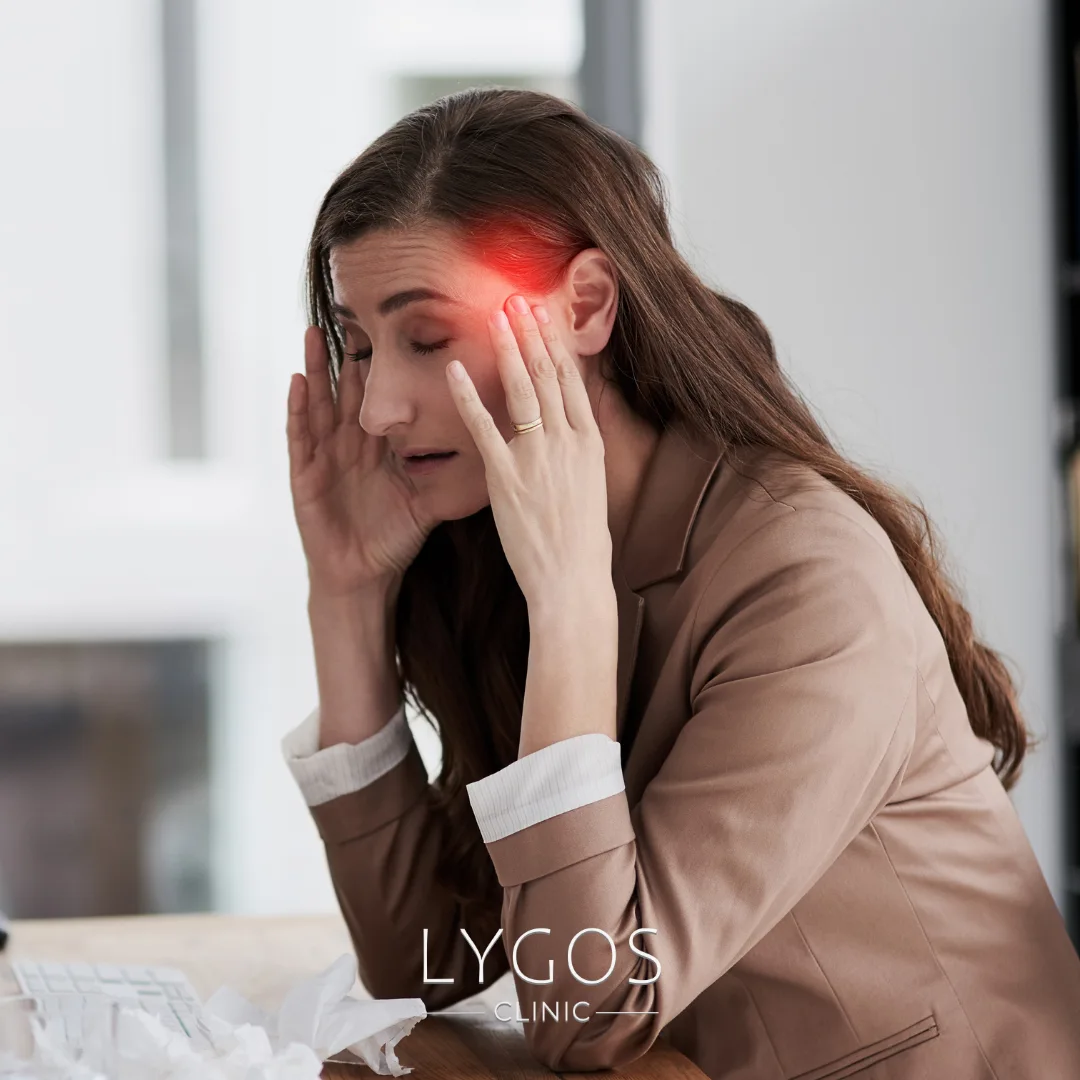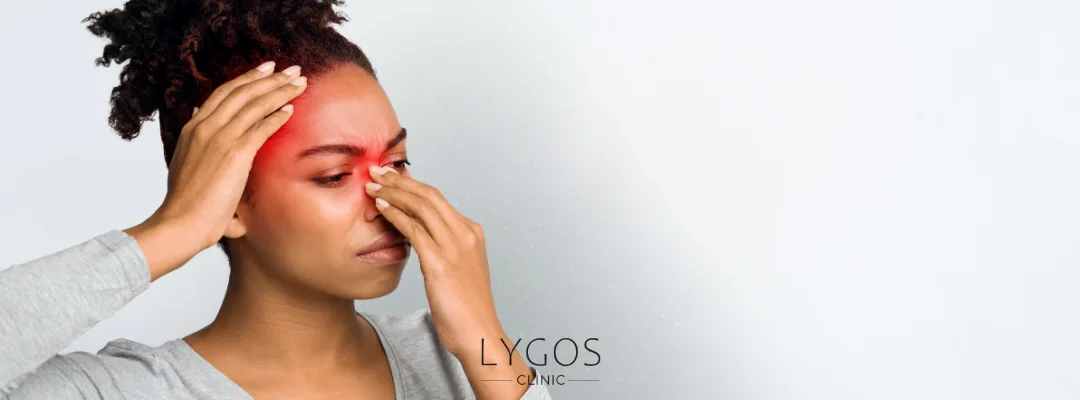What Causes Throbbing Head Pain?

Chose Your Topic
What Causes Throbbing Head Pain?
Throbbing head pain is a common issue in daily life. Sometimes it stems from simple causes such as stress or lack of sleep, but in other cases, it may signal a more serious condition. This type of pain is often felt as a rhythmic throbbing sensation that coincides with the heartbeat. So, what causes throbbing head pain, when is it dangerous, and how can it be relieved? In this article, we’ll explore all aspects of throbbing head pain in detail.

What Is Throbbing Head Pain?
Throbbing head pain refers to pulsating aches felt in one area or throughout the head, usually in sync with the heartbeat. While it may last only a short time, in some individuals it can persist for days.
It’s often accompanied by nausea, light sensitivity, dizziness, fatigue, or difficulty concentrating.
This type of pain tends to be more intense in conditions like migraine or blood pressure fluctuations.
Why Does Throbbing Head Pain Occur?
There isn’t a single cause for throbbing head pain — it can result from both lifestyle factors and medical conditions. The most common causes include:
Stress and Anxiety: Emotional tension can cause muscle stiffness and blood vessel constriction, leading to throbbing pain.
Lack of Sleep: Insufficient rest may cause blood vessels in the brain to dilate, triggering headaches.
Dehydration: Not drinking enough water throughout the day can increase headache intensity and throbbing.
Caffeine or Alcohol Consumption: Excess intake disrupts blood vessel balance and causes pain.
Hormonal Changes: In women, hormonal fluctuations during menstruation, pregnancy, or menopause can trigger throbbing head pain.
Blood Pressure Problems: Both high and low blood pressure can affect blood flow to the brain and cause throbbing pain.
Eye Strain: Prolonged screen time or improper eyewear can lead to throbbing pain.
Sinusitis: Inflammation of the sinuses can cause throbbing sensations around the forehead and eyes.

Most Common Causes of Throbbing Head Pain
The source of throbbing pain may vary from person to person. Here are the most frequent causes:
Migraine
Migraine-related throbbing pain usually affects one side of the head and feels like a pulsating heartbeat. Light, sound, and smell sensitivity, along with nausea, are common.
Triggers include stress, hormonal changes, skipping meals, or bright lights.Tension-Type Headache
This type of headache is linked to stress, fatigue, or muscle tension, causing a tightening or throbbing sensation around the head.Sinusitis
Inflamed sinuses cause throbbing pain around the forehead, nose, and eyes. The pain often worsens when bending forward.Hypertension (High Blood Pressure)
Increased blood pressure can cause throbbing pain, particularly in the back of the head and neck, often worse in the morning.Cluster Headache
This severe, throbbing pain occurs around one eye and is more common in men. Attacks often recur in cycles.
Which Diseases Can Cause Throbbing Head Pain?
Throbbing head pain isn’t always a temporary issue — it can sometimes signal serious health conditions, including:
Migraine and Tension Headache
Hypertension (High Blood Pressure)
Cerebral Vascular Blockages
Brain Tumors
Menstrual Migraine
Sinusitis and Upper Respiratory Infections
The location, duration, and frequency of pain are key to identifying the underlying cause.

What Helps Relieve Throbbing Head Pain?
The best remedy depends on the underlying cause, but both natural and medical methods can help alleviate symptoms.
Natural Remedies:
Drink Plenty of Water: Simple yet effective for dehydration-related pain.
Maintain Regular Sleep: Helps regulate brain function and reduce throbbing.
Cold or Warm Compress: Use a cold compress for migraines; a warm one for muscle tension.
Balance Caffeine Intake: Too much caffeine can worsen pain.
Essential Oils: Massaging with lavender or peppermint oil may bring relief.
Stress Management: Breathing exercises, yoga, or meditation relax muscles and reduce tension.
Healthy Diet: Avoid skipping meals and processed foods to prevent headaches.
Medical Treatment:
Over-the-counter pain relievers like paracetamol or ibuprofen can help with mild pain.
For migraines or severe cases, prescription migraine medications or muscle relaxants may be needed.
Persistent or severe headaches should always be evaluated by a healthcare professional.
When Should You See a Doctor?
Not all throbbing head pain is dangerous, but you should consult a doctor if:
The pain lasts for several days or recurs frequently,
It starts suddenly and severely,
It’s accompanied by vision loss, speech problems, or fainting,
It occurs after a head injury,
You have high fever or neck stiffness,
It doesn’t improve with medication.
These could indicate serious issues such as vascular disorders or infections.
Throbbing head pain often stems from temporary causes like stress, fatigue, or dehydration. However, it can also be a warning sign of an underlying medical problem. Maintaining regular sleep, staying hydrated, eating healthily, and managing stress are key to prevention.
If the pain is intense, frequent, or prolonged, consulting a neurologist is essential. Remember — your body’s signals matter, and early diagnosis is always the most effective path to treatment.
What Causes Throbbing Head Pain? Frequently Asked Questions (FAQ)
It’s often triggered by stress, lack of sleep, dehydration, hormonal fluctuations, or blood pressure changes. Conditions like migraine, sinusitis, or hypertension can also cause it.
Drinking plenty of water, getting enough sleep, avoiding stress, and using hot or cold compresses can help. If pain persists, consult a doctor for suitable medication.
It may be linked to migraine, sinusitis, hypertension, vascular blockages in the brain, or hormonal imbalances. Persistent pain requires medical evaluation.
If it starts suddenly, is very severe, or comes with vision problems, speech difficulties, or dizziness, it may indicate a serious health issue — seek medical help immediately.
Balanced nutrition, adequate hydration, lavender or peppermint aromatherapy, yoga, and breathing exercises can help relieve symptoms naturally.



